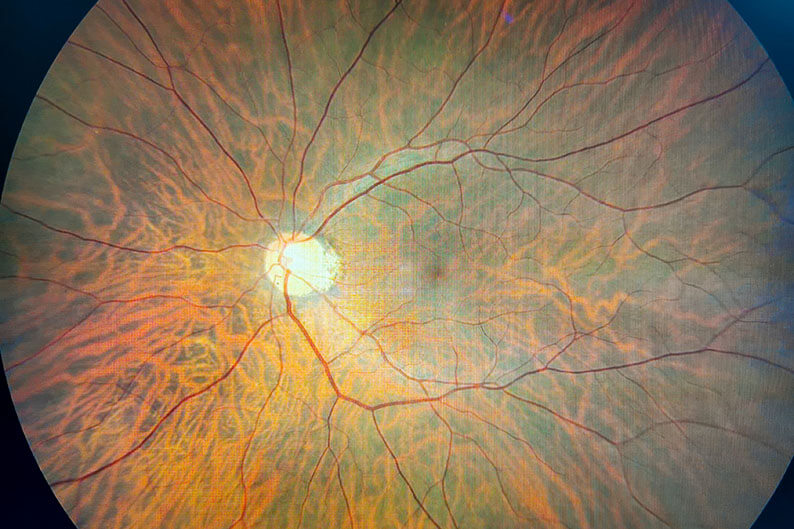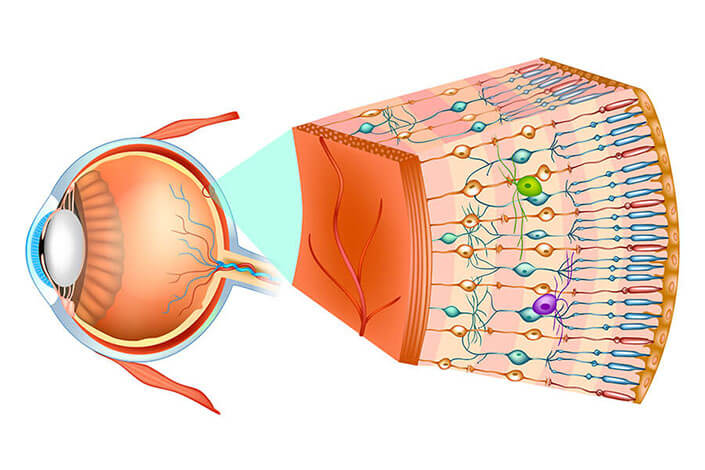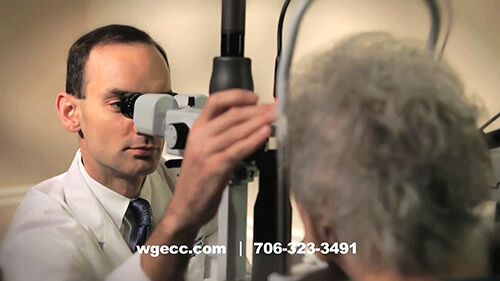Retina
The retina is an integral part of your eyesight. Without a healthy retina, sight is impossible.
Many conditions and diseases can affect the retina, and several of them can lead to partial or total vision loss. In many cases, with proper treatment, vision loss is preventable.
The only way to prevent vision loss due to an existing retinal condition is to keep regularly scheduled visits to your eye doctor. Early diagnosis and treatment of retina conditions can often restore existing vision loss, and prevent further vision loss in the future.
The ophthalmologists at West Georgia Eye Care Center have the experience necessary to keep your retina healthy. They are experts at testing for, diagnosing, and treating retina conditions and diseases.
What is The Retina?
The retina is a thin sheet of tissue that lines the back inner wall of your eye. It is photosensitive, which means it reacts to light.
The retina contains photoreceptor cells called rods and cones, which get activated by light. Rods handle your low light vision and black and white colors.
Cones are responsible for higher-level vision, seeing colors, and spatial acuity. These cells make up the tissue that is your retina.
The cornea and lens in your eye focus light onto your retina. The photoreceptor cells in your retina then get activated by the type of light entering your eye.
When they activate, they turn light into nerve signals and send it to your brain down your optic nerve. Your brain interprets those signals and creates images out of them. If any part of your retina gets damaged, the eyesight can be affected.
What Diseases Affect the Retina?
Your retina is thin and delicate. Both physical trauma and internal diseases can damage it.
A variety of lifestyle factors, combined with frequent visits to your eye doctor, are the best ways to protect your retinas. Lifestyle habits often lead to the most common retina diseases. These diseases and conditions include:
- Diabetic retinopathy
- Macular degeneration
- Retinal artery and vein occlusion
- Posterior uveitis
- Retinal tear
- Retinal detachment
- Macular edema
All these can affect different parts of your retina, and their causes vary. But, they can all result in vision loss without the proper treatment.
What Happens During a Retinal Exam?
A retina examination is longer than a standard eye exam. It can take up to three or four hours, depending on your particular situation and eye health.
Before it begins, your eye doctor will give you dilating eye drops. These drops hold your pupils open wide for the duration of the exam and for several hours afterward.
It is very helpful to have someone else drive you home after a retina exam. Dilated pupils can stay dilated all day and impact your vision. It is helpful to have sunglasses to wear for the rest of the day. Sunlight can be very irritating to your eyes when your pupils are dilated.
Do you need to have your retinas examined? Schedule an appointment at West Georgia Eye Care Center in Columbus, GA, to keep your eyes safe!
Retina Specialist









